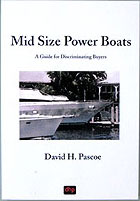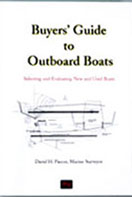Chapter 12
Excerpt
The writing of the investigation report involves the work of taking all aspects of the investigation, analyzing and pulling them together to draw a conclusion.
How we arrive at these conclusions and present the results of our work is every bit as important as the actual investigation because the report is the only aspect of our work that others will see.
We've done the investigative leg work; have come to a conclusion, and in our mind's eye we think we know how it will look. But how will it look on paper? The reality is that the way we conceive it in mind, and how it turns out in the written word, is usually quite different.
With that in mind, in this chapter we will carefully analyze the elements of good reports and the means to achieve professional results.
The investigator will want to make sure that his report is as professionally competent as he can possibly make it. A poorly prepared report makes about as bad an impression as showing up in court in a bathing suit and a ring in one's nose.
The bulk of the investigator's work involves cases that are relatively simple, and for which writing the report is not difficult. When investigations are short and simple, the reports should also be. One should not feel the need to fill many sheets of paper with words to be impressive. For many investigations a one-page report is sufficient.
But a certain percentage of our work will involve large, complex cases in which the writing of a good report is a decidedly difficult task, and it is these that we are concerned with here, for the large or complex investigations are the ones most likely to be litigated, though in reality any case can end up in litigation.
Unfortunately, it is usually those cases which we expect to be run-of-the-mill, open and shut cases that catch us by surprise, which we find that we did not do as good a job as we should have, that come back to haunt us.
Therefore, we should get into the habit of treating all investigation reports as if litigation will ensue.
In preparation for writing this chapter I reviewed dozens of investigation reports of others, culled from my files, in which the vast majority lacked a professional standard of presentation, or were fraught with errors.
(Additional spaces are added for easy screen reading.)
Table of Contents: Chapter Chapter 12
12. Reports 419
A Public Document 420
Personal Bias 421
Economy of Words 421Composing Reports 422
Evidentiary Documentation 422
Logical Structure 423
Introduction or Preamble 423
Vessel and Component Identification 424
Background 424
Persons in Attendance 425
Attachments 425
Methodology 425
Presentation of Findings 425
The Conclusion 426Dos and Don'ts 428
Investigation of Persons 428
False Theories and Misleading Evidence 429
Discussion of Conflicting Evidence 429
Unsupported Allegations 430
Opinions and Editorializing 430
Analysis of a Bad Example 431
Attacking an Opponent 433
Fraud 434Writing 434
The Process of Writing 434
Relevancy 435
Hearsay 436
Style and Tone 437
Right Words, Wrong Words 438
Non Sequiturs 438
No Disclaimers 439
Editing 439
Hone Your Writing Skills 440Additional Factors 441
Incomplete Investigations 441
Other Experts 443
| Expand Business! |
|---|
| Marine
surveyors: Expand your marine business! Conducting marine investigations can help free you from the limitations of a seasonal business and expand your business opportunities and income. |
| Who Hires? |
| Who
hires marine investigators? In addition to insurance companies, specialist investigators merge their specialized pleasure craft knowledge with investigative abilities for a broad range of clientele. |
| Clientele |
| These
can range from boat owners with serious warranty claim disputes and
faulty repair issues to being hired by lawyers as investigators as
either fact witnesses or expert witnesses. Marine investigators often work for boat owners who are having trouble with insurance claim issues, assisting the boat owner obtain a proper claims settlement. |
by David H. Pascoe
Soft Cover
544 pages
Publisher: D. H. Pascoe & Co., Inc.
Published: 2004
Language: English
ISBN-10:0965649652
ISBN-13: 9780965649650
In Stock
HOME >
David Pascoe - Biography
David Pascoe is a second generation marine surveyor in his family who began his surveying career at age 16 as an apprentice in 1965 as the era of wooden boats was drawing to a close.
Certified by the National Association of Marine Surveyors in 1972, he has conducted over 5,000 pre purchase surveys in addition to having conducted hundreds of boating accident investigations, including fires, sinkings, hull failures and machinery failure analysis.
Over forty years of knowledge and experience are brought to bear in following books. David Pascoe is the author of:
- "Mid Size Power Boats" (2003)
- "Buyers’ Guide to Outboard Boats" (2002)
- "Surveying Fiberglass Power Boats" (2001, 2nd Edition - 2005)
- "Marine Investigations" (2004).
In addition to readers in the United States, boaters and boat industry professionals worldwide from over 70 countries have purchased David Pascoe's books, since introduction of his first book in 2001.
In 2012, David Pascoe has retired from marine surveying business at age 65.
On November 23rd, 2018, David Pascoe has passed away at age 71.





